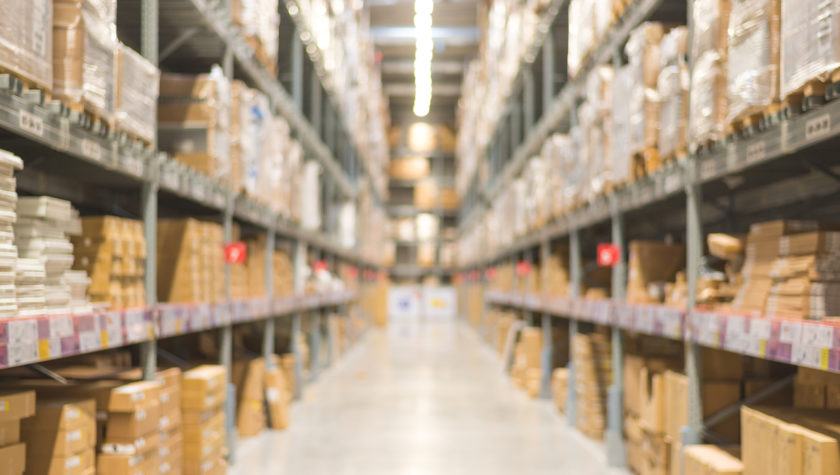Whitehall and Town Halls should offer greater support to efforts to meet people’s growing demands for fast deliveries while also reducing congestion and carbon emissions, the National Infrastructure Commission warned today.
As more and more consumers are looking to get next-day deliveries on their last-minute Christmas shopping this weekend, chairman Sir John Armitt argued the need to address the environmental impact of this growing trend.
He warned that if left to industry alone, this issue could take years to solve.
The UK’s freight industry is one of the most efficient and productive in the world, moving over two billion tonnes of goods in 2016 alone.
However, while lorries and vans only make up a fifth of the total vehicle mileage in the UK, they cause 31 per cent of the UK’s greenhouse gas emissions from transport, and comprise a third of traffic entering London’s Congestion Charge Zone at peak times. Lorries alone make up a quarter of all road use on the country’s motorways.
Today’s interim report warns that without dedicated and ambitious action supported by Ministers and councils, the incentives will not be there to cut the industry’s impacts on congestion or to drive sufficiently rapid reductions in the industry’s carbon footprint. This in turn could impact on the country’s ability to meet wider climate change targets.
Instead it highlights the need for central and local government to allow for the needs of freight operators across the country and to use regulation more effectively to help ensure reduced carbon emissions and congestion while enabling freight companies to do their job effectively.
It also emphasises the need for a clear and coordinated approach across the country to improving air quality, so freight companies can follow them more easily, and for better data sharing to help inform local and national policies.
These initial findings will now form part of a wider conversation with industry and government at all levels. The National Infrastructure Commission will make recommendations in its final report on how government and industry can remove inefficiencies from the freight system, and reduce the sector’s carbon footprint – all while meeting the increasing needs of customers.
Chairman of the National Infrastructure Commission Sir John Armitt said:
“This weekend, thousands of lorries and vans will be criss-crossing the country delivering our last-minute Christmas shopping. The growing demand for faster and more convenient freight is not just in the festive season but all year round – but it’s one that could have a serious impact on our roads, and on our environment.
“Our freight industry is one of the best in the world, but the incentives aren’t there to drive down its carbon footprint sufficiently quickly. It needs action from Whitehall and Town Halls to help make that happen.
“Our report highlights the need to tackle this through the planning system, through better regulation and through access to better data – all with the aim of helping the industry to operate in an environmentally-friendly way while at the same time delivering the services that we as customers increasingly expect.”
Commissioner Bridget Rosewell said:
“Our freight industry is world class – but it struggles to strike the right balance between meeting the needs of customers and the needs of the environment, particularly in the face of growing demands for ever-faster deliveries.
“Central and local government could and should do more to help operators to clean up their act, helping to cut carbon emissions and congestion and making a real difference to air quality while also delivering the services to its already high standard.”
Commissioner Andy Green said:
“Like the rest of the transport sector, freight operators are at the cusp of a technological revolution thanks to the development of electric, and even driverless, vehicles. But there needs to be concerted action by both Government and industry to seize these opportunities.
“The prize is considerable: by helping to make the most of these changes, we can continue to have a strong freight industry delivering for its customers, but one that is low carbon, with as low an impact as possible on congestion on our roads.”
Tackling carbon and congestion in the UK’s freight industry
Established in 2015, the National Infrastructure Commission provides independent, impartial advice to Government on meeting the country’s future infrastructure needs.
In November 2017, Chancellor Philip Hammond tasked the Commission with examining the future of the freight industry, and to identify how government can help companies get their goods to the front door or factory gate faster and more efficiently.
Today’s report outlines the study’s interim findings, highlighting:
- Tackling the risk of freight’s future impact on congestion and carbon emissions – without action, freight’s contribution towards congestion and carbon emissions will remain problematic
- The need to consider freight in spatial planning – while homes and essential services are included in local plans, freight is often overlooked. The National Planning Policy Framework only includes two references to freight. Failing to plan and protect land for freight could result in companies “sprawling” further from city and town centres, placing them further from customers and increasing journey times, emissions and congestion
- The need for greater regulatory certainty – A more coordinated approach within and between central and local government, based on better data, will help Ministers and council leaders develop measures to tackle the impact of congestion and carbon emissions, including through more coordinated and clear regulations and standards
- Better data for informed decision-making – Detailed freight data, and particularly that relating to routes that operators take, is not usually available to policy-makers, and what is available is of variable quality. With van traffic growing, local areas will need to make the most of opportunities such as Automatic Number Plate Recognition technology to improve the data available, which can then be used to design policies to support freight operators
A final report will be published in Spring 2019, which will explore these issues further and include recommendations for the Government and industry to help improve the system further.




